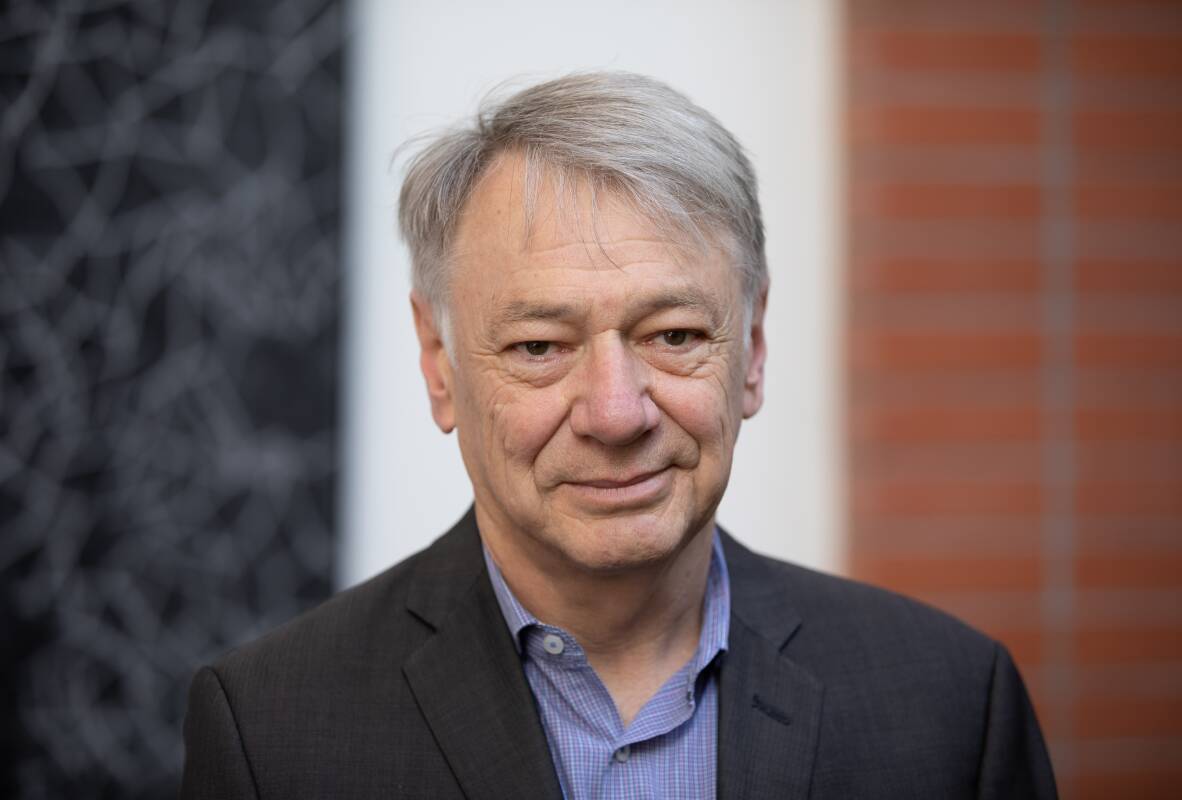
University of Newcastle history professor Philip Dwyer believes there are two ways of looking at history. There's what people imagine it to be, and there's what historians know.
"What historians know is often a much more cynical, and much more realistic, much more personal story, that, despite the fact that we've been writing about these things, for many, many years, has yet to seep down into the popular consciousness," he says.
Over coffee at Good Brother Espresso, Professor Dwyer and I discuss Anzac Day, war and violence, subjects that Dwyer knows a lot about. He's the founding director for the centre for the study of violence in Newcastle and he writes prolifically on the topic.
He hasn't always been interested in violence. In his 20s Dwyer moved from Perth to Paris to become a chef, but he ended up at university instead. He then went on to Berlin to do his PhD. He returned to Australia in the early '90s and moved to Newcastle in 1994 to teach.
MASSACRES
He started out as a scholar of 18th century France and Europe, studying the French Revolution and Napoleon.
"Writing a three-volume biography of Napoleon, especially when I was writing my first volume got me thinking about the massacres committed by the French troops against Italian peasants in the late 18th century, something that hadn't really been delved into before," Dwyer says.
"And then I started collaborating with a colleague at the university, Lyndall Ryan, on the nature of massacre. And that led to a book and a conference and eventually to Lyndall's massacre map, which traces the number of colonial massacres committed against Indigenous people in Australia which is now internationally recognised as a path-breaking way to look at settler/indigenous relations."
This got Dwyer thinking more broadly about violence. He began responding to well-known philosopher Stephen Pinker's thesis about violence. Pinker wrote a book called The Better Angels of our Nature: Why Violence Has Declined. Dwyer challenged Pinker with a collection of essays in a book called The Darker Angels of our Nature.
THE SAVAGE HEART
More recently Dwyer has been working on a new book examining violence from prehistory to present. It's called The Savage Heart, a Global History of Human Violence.
"What I'm trying to do is understand why there are certain periods of our history that are more violent than others, what motivates people in general, to take part in acts of violence," he says.
Dwyer isn't talking about the mentally unwell. He's talking about individuals and groups of people who commit acts of violence and have always done so throughout history. His argument is that violence evolves over time; it's a tool people use to achieve a particular end.
"Whilst some forms of violence might disappear, they are sometimes replaced by other forms of violence," he says.
For example homicide rates around western industrialised nations (apart from the US) are about one in 100,000 and have been for the last 200 years.
"So people think that, 'okay, we are living in a more peaceful society.' But the flip side to that is that suicide rates have actually increased in almost direct proportion to the decline in homicide rates. And I think that's a very interesting relationship that hasn't really been studied" he says.
One of Dwyer's most read and commented on articles is about Anzac Day, published in 2015 in The Conversation. Dwyer's grandfather fought on the Western front as a 16-year-old and came home suffering from PTSD.
"I only know this from my mother, who said he was a very strict father, who had to have absolute silence in the house while the children were growing up because he couldn't stand the noise," he says. "People still have a very sugar-coated view of what Anzac was really all about, not only who the men were, but what they actually went through, and what the consequences of that trauma were for those who endured it."
On Wednesday, April 24, at The Base Health in Newcastle West, I'll interview Dwyer as a part of a new collaborative initiative called Common Ground. He and I will discuss Anzac Day, violence and narratives of war. Afterwards Professor Dwyer will join a panel with psychiatrist Dr Cynthia Parker who specialises in PTSD and Joe Garcia who served for four years as a soldier in the US Army. Audience participation is encouraged. Common Ground aims to build a conversational community to facilitate productive discussion and critical thinking about complex and controversial issues.







